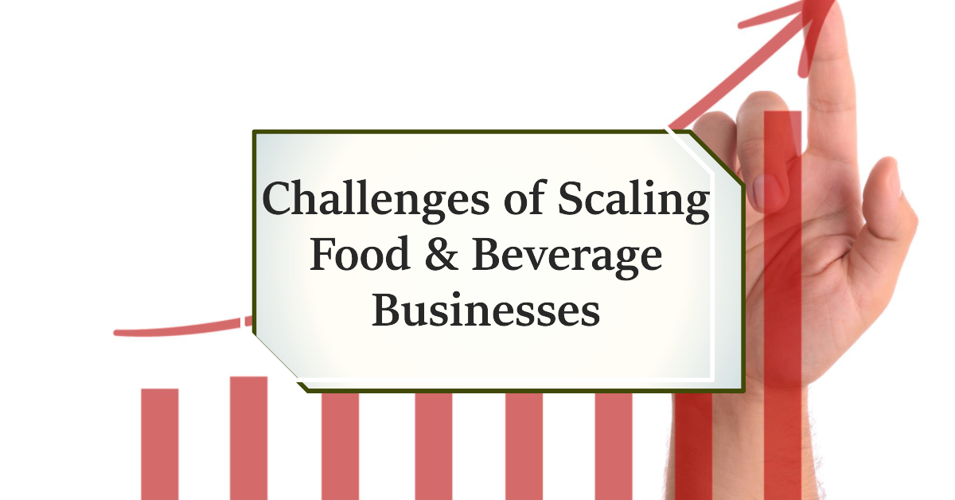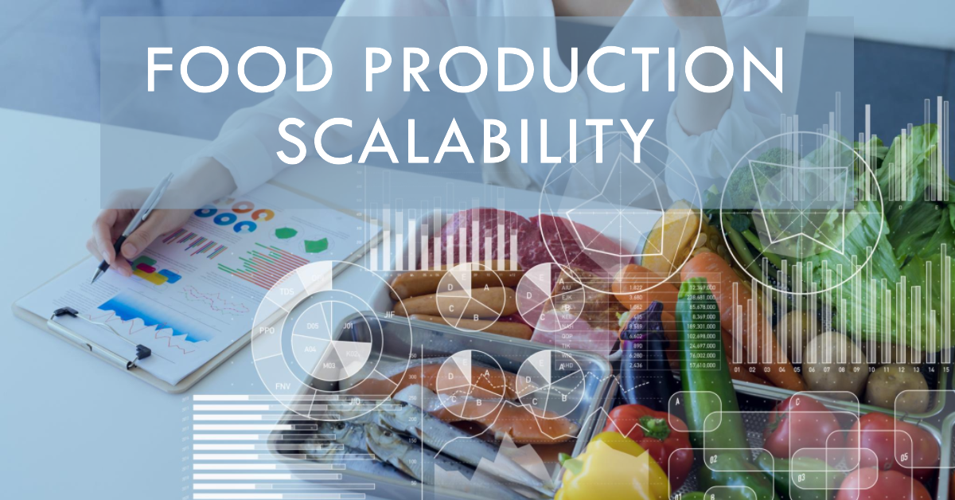
It is always exciting to grow a food and beverage business, but not easy. The evolution from a small-scale business to a large-scale business involves handling several challenges that are peculiar to the business. There are several hurdles to be cleared throughout this process: starting from the choice of strategies for the management of food safety regulation to the introduction of sustainable practices.
In this article, the authors discuss the issues that the food industry companies encounter on their way to growth and the techniques that can help them to overcome the problems.
Let’s explore it today!
Problems faced by the food industry
The food and beverage industry is very volatile and is influenced by changing consumer trends, standards and policies, and trends in the global market. These challenges are well understood when scaling operations to ensure the firm remains relevant in the market.
Key Food Industry Challenges
Evolving Consumer Preferences: As consumers become more health-conscious and eco-aware, they increasingly prefer sustainable food packaging solutions, like those offered by The Box Zilla
Food Safety Regulations: It reveals that the achievement of compliance standards is a little more challenging when there is a high production rate.
Supply Chain Disruptions: The supply chain is a well-known factor that is sensitive to global conditions such as delay and price volatility, and is also affected by shortages which are detrimental to scaling up.
Example: Ever since the COVID-19 outbreak, the food business realized that the supply chain needs to be flexible and prepared for change.
Discover the relevance of sustainability with the help of our Eco-friendly packaging guide to satisfy consumers’ needs and expand your business.
Trends Within the Food Industry
Plant-Based and Healthy Foods
The most important trend that can be mentioned in the food sector is the increase of vegan and health-oriented products. When scaling up, businesses ought to alter their product and services in accordance with these preferences.
Technology Integration
Cognitive technologies like AI and IoT are transforming food processing and packaging. As a leading packaging supplier, The Box Zilla leverages these innovations to enhance packaging efficiency and sustainability.
Sustainability and Ethical Practices
Sustainability remains high on the consumer agenda, as people demand more sustainable packaging and sourcing of food.
Supply Chain Management: A Critical Factor
Here, it is evident that scaling operations greatly enhances the significance of supply chain management. A supply chain that is not optimized leads to time delays, high costs, and unsatisfied customers.
Tips for Effective Supply Chain Management
Use different suppliers to avoid being associated with one supplier only.
Technological advancement should be made in the area of monitoring and improving the flow of goods.
Sustainability can be included by using environmentally friendly packaging and carriers.
Food Production Scalability: Quality and consistency as important factors
In the food and beverage sector, this may be one of the hardest scaling issues to tackle, which is the issue of quality and homogeneity of the foods and beverages produced as production is scaled up.
Challenges in Food Production Scalability
Ingredient Sourcing: The other is to lock in better quality raw materials at higher quantities.
Equipment Limitations: The need to expand capacity through a change of newer and more efficient machinery.
Workforce Training: Assuring that the staff is ready to handle increasing operations volumes without significant quality losses.
To maintain product quality it is wise to perform regular quality audits and optimize the flow of materials and products within the production line.
Food Safety Regulations: A Non-Negotiable Priority
It was suggested that the requirements for food safety regulation increase as the size of a business grows. Otherwise, a company may face legal consequences, financial sanctions and, not to mention, the loss of customer confidence.
Key Regulations to Consider
The guidelines that the FDA and USDA give to producers and packagers.
Nutritional information and allergens labeling regulation
Such standards include hygiene in the different facilities and during the transportation process.
Actionable Strategy: Adopt sound food safety practices in order to curb all potential risks right from production to distribution.
Sustainable Food Packaging: A Growing Necessity
As it has been pointed out, sustainability has become a requirement in the contemporary food and beverage industry. However, sustainable food packaging enables organizations to achieve regulatory requirements as well as improve brand image.
Why Sustainable Packaging Matters?
Reduces environmental impact.
Targets people who have a sensitive conscience and care for the environment.
Complies with global trends and policies.
Find out more from The Box Zilla - Branded packaging and make your product more scalable and even more satisfying for the customer.
Balance costs and profitability
Scaling calls for capital intensity, be it through the acquisition of new machinery or procurement of human resources. Control of costs and revenues is the key factor in order not to come under pressure of financial losses.
Cost-Effective Strategies
Take advantage of buying in large quantities of raw materials and other necessities in large quantities.
Efficient use of energy and other resources should be made in order to reduce expenditure.
At the initial stage of the scaling process, it is crucial to concentrate on the high-margin product.
Brand Awareness and its significance
Developing a solid brand image is crucial for companies that want to grow in the saturated food and beverage market. A good brand comes with customer loyalty and enables one to distinguish their products from other traders.
Tips for Strengthening Brand Identity
Emphasize the aspects of competitive advantage like, for instance, using materials from local suppliers, the product’s high quality, or a creative design of the packaging.
Ensure that your brand identity is uniform across all media; packaging and promotional materials.
Use stories and social media to reach out to the consumers.
Using Technology for Expansion of Operations
In the food sector, scaling operations have become a major problem, but technology has a significant part to play in tackling the problem. Be it, managing production lines or improving customer satisfaction, technology interventions are inevitable.
Technologies to Consider
ERP Systems: For organizing procurement and sales orders, inventory and works orders.
IoT Devices: In the case of real-time tracking and evaluation of supply chain and equipment efficiency.
AI-Powered Analytics: For demand forecasting and for operational and tactical planning.
Case Study: Factors that affect scaling success in the food industry
Beyond Meat
Beyond Meat which is a company dealing in plant-based foods was able to grow its operations and at the same time guarantee quality and invention. The brand incorporated technology, sustainable strategies, and partnerships to tackle rising demand.
Key Takeaways
Invest in research and development so that the brand can keep on improving its products.
It is important to work with suppliers who will supply quality products to the business.
Be in the right place at the right time to beat the competition in the market.
As with any business, there are several problems that are associated with scaling a food and beverage business with regard to food industry problems and the problems of sustainable food packaging. Nevertheless, the above-mentioned challenges may be effectively addressed through strategic management of resources and customers in particular.

Industry trends, supply chain management, and technological integration make it possible to prepare your brand for sustainable operation in the food industry.
About The Author:
Charle John is a creative storyteller and branding strategist with a knack for transforming ideas into impactful brand experiences. With over 3 years in the industry, she’s helped businesses craft unique voices that resonate with their audience. Her passion for design, innovation, and storytelling drives her to constantly push the boundaries of creativity.



(0) comments
Welcome to the discussion.
Log In
Keep it Clean. Please avoid obscene, vulgar, lewd, racist or sexually-oriented language.
PLEASE TURN OFF YOUR CAPS LOCK.
Don't Threaten. Threats of harming another person will not be tolerated.
Be Truthful. Don't knowingly lie about anyone or anything.
Be Nice. No racism, sexism or any sort of -ism that is degrading to another person.
Be Proactive. Use the 'Report' link on each comment to let us know of abusive posts.
Share with Us. We'd love to hear eyewitness accounts, the history behind an article.